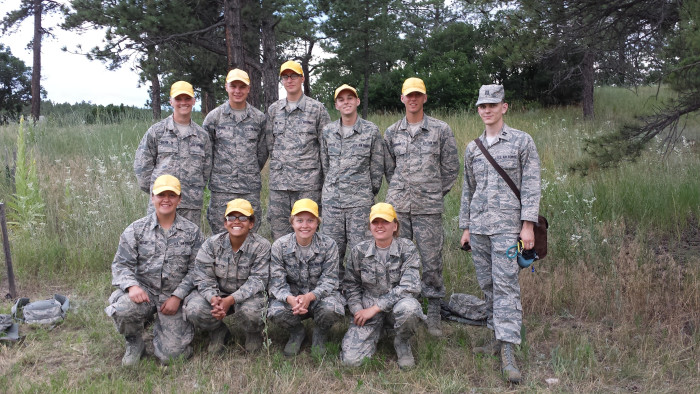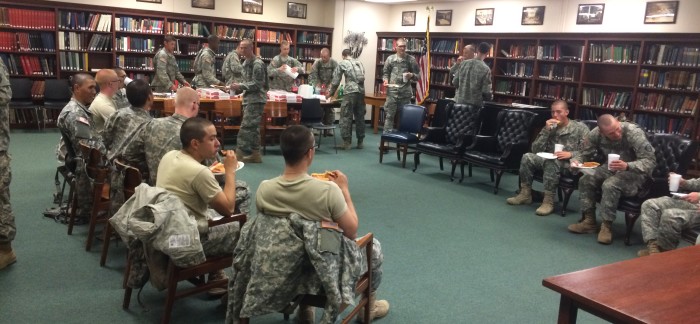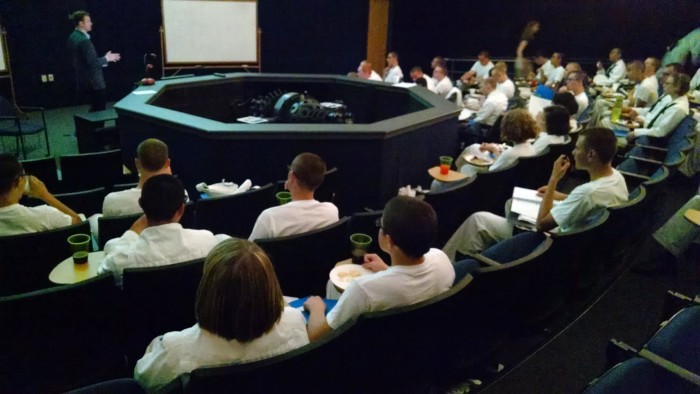Service Academy Trainees Benefit from Humanist Services
Again in 2015, each Service Academy has allowed humanist alternatives to chaplain services. At West Point, the Naval Academy, and the Air Force Academy, humanist personnel are able to meet with mentors and peers who share their beliefs. While not yet entirely equal in visibility and resources to what traditional religious services receive, these programs are benefitting cadets and midshipmen. These programs prove the concept that humanist groups are beneficial and stand as a positive example that should be followed throughout the military.
Note: Coincidentally today, the American Humanist Association has published a settlement whereby the Federal Bureau of Prisons has offered equality to humanist inmates. Hopefully the DoD will favorably settle their own humanist lawsuit soon. Congrats and thanks to the AHA and FBP.
Captain Jeremy Thompson and 9 “Basics” (they won’t be called “cadets” for another couple of weeks), during “Personal Resiliency Time,” at Jack’s Valley, US Air Force Academy. Carlos Bertha took the picture and participated in a lively discussion with topics ranging from current events, to philosophy of science, to religion in society.
At West Point, trainees meet in an office of the Department of History, surrounded by military history written by those who participated first hand in making history. At the Naval Academy, trainees meet in the planetarium, and in the most recent meeting were treated, among other things, to videos of Neil DeGrasse Tyson explaining the wonders of our natural universe. At each meeting, trainees discussed living as a nontheist in the military, relying on humanist values in the face of war, and how to live a meaningful life.
At each military academy, these valuable programs ensure that trainees have a humanist option. In the absence of humanist chaplains, each meeting is planned and executed by Academy faculty, cadets, officers, and former military, not in their official capacities but as volunteers donating their free time. This downtime for trainees is part of each Academy program for trainees of all beliefs because Academy leaders understand the importance of personal values and a supportive community of like-minded individuals.
A similar program is in place at Air Force Basic Training. At Navy Basic Training, trainees and volunteers have both made inquiries to chaplains and to the local command to create a similar program. Hopefully chaplains or at least non-chaplain leaders will embrace diversity and make these opportunities available for all military personnel.



